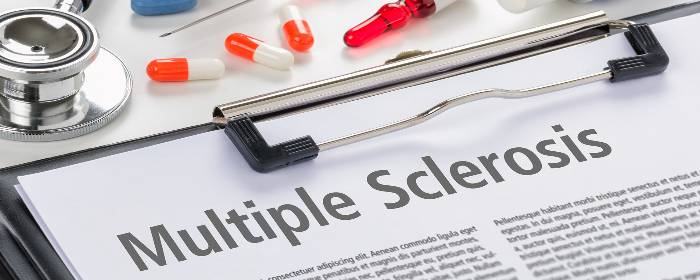Of all conditions that affect the central nervous system, Multiple Sclerosis (MS) is the most common in young adults. The severity of multiple sclerosis varies considerably and can affect almost every organ system in the body affecting eyesight, bowel function, bladder function, and sexual function. Multiple sclerosis may cause cognitive problems, depression, seizures, fatigue, and pain. Most people with multiple sclerosis will have a relapsing-remitting course, which means they will have periods of relative health punctuated by flare-ups of the condition. About one out of ten people with the condition will have primary progressive multiple sclerosis, which means once the disease occurs it almost constantly causes symptoms and progresses over time.
Multiple sclerosis appears to be an inflammatory condition that affects the covering around nerves. During acute flareups/exacerbations, physicians usually prescribe a powerful steroid medication such as methylprednisolone to combat the inflammation. Patients with multiple sclerosis generally always require some sort of treatment to help manage their immune system. No fewer than 15 immune modulating treatments have been used to treat multiple sclerosis, none of which provides a cure. As such, researchers are seeking new and innovative ways to treat this potentially debilitating condition.
Researchers at the Tisch Multiple Sclerosis Research Center of New York chose to focus their research efforts on a particular type of stem cell, namely bone marrow-derived mesenchymal stromal cells. The researchers harvested these cells from the patients themselves (autologous stem cells). Then, in their laboratory, scientists used various means to prompt the cells to become neural progenitors. A neural progenitor cell is a cell that can become any of the three main types of brain cells: neurons, astrocytes, or oligodendrocytes. Incidentally, oligodendrocytes are believed to be most affected in multiple sclerosis.
Harris and co-authors at the Tisch Center enrolled six patients with progressive multiple sclerosis. These six patients had failed to find relief from other conventional multiple sclerosis treatments. The researchers provided between 2 to 5 infusions of neural progenitor cells into the spinal fluid. The multiple sclerosis patients treated with the cells tolerated the treatment very well. No serious adverse events occurred, nor were there any safety concerns during treatment. Impressively, four of the six patients—for whom no other multiple sclerosis treatment worked—had a measurable clinical improvement after stem cell treatment.
Based on the results of this clinical study, the scientists concluded that neural progenitor cells created from autologous mesenchymal stromal cells were safe to use in patients with primary progressive multiple sclerosis. Moreover, the beneficial effect witnessed in two-thirds of treated patients suggests that these cells may be able to help patients with even the most severe and difficult-to-treat forms of multiple sclerosis. Of course, additional testing is required before this treatment becomes commonplace, but the results of this first-in-human clinical study are extremely encouraging.
Reference: Harris et al. (2016). Clinical safety of intrathecal administration of mesenchymal stromal cell-derived neural progenitors in multiple sclerosis. Cytotherapy. 2016 Dec;18(12):1476-1482.


 St. Petersburg, Florida
St. Petersburg, Florida
